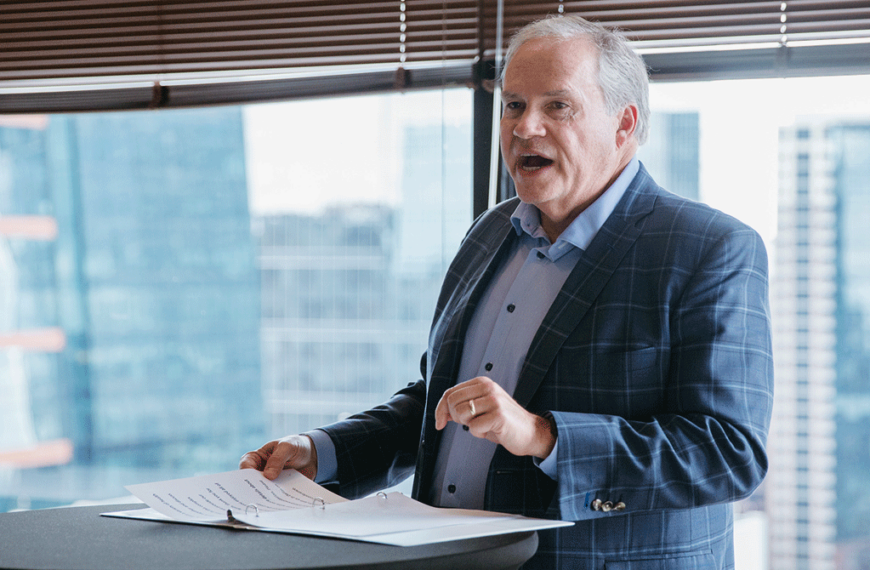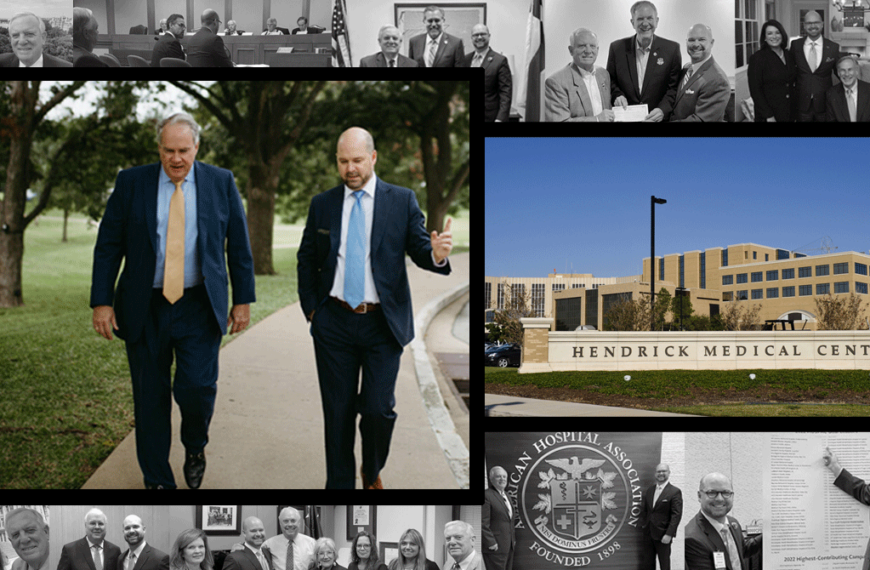Out of all the ways the Texas Hospital Association pushes for better health care in Texas, HOSPAC – the only political action committee that represents all Texas hospitals – may be the most tangible and impactful route to positive change.
In a crucial election year – as HOSPAC awaits the results of next week’s Texas primary to see where its advocacy strategy and dollars will go from there – HOSPAC Board Chairman Ajith Pai says hospital leaders who are part of HOSPAC gain the opportunity to be something the candidates themselves often strive to be as well.
“We want to be agents for positive change,” said Pai, president of Texas Health Harris Methodist Hospital Southwest Fort Worth. “And we have the power to do that.”
Each election cycle, members across the state help HOSPAC assess the candidates running to represent their districts, their hospitals and their patients, and help steer the PAC’s activities toward its ultimate goal: elevating the right people into office to make Texas a better environment for health care and hospitals.
What is HOSPAC?
Donations that HOSPAC makes to hospital-friendly candidates – and the fundraising events and other promotional work HOSPAC does to boost those candidates in their local districts – make the PAC the catalyst for critical relationships between THA members and the elected officials who represent them.
THA’s top legislative victories of the 2023 general session of the Texas Legislature, for example – including new laws to prevent and address workplace violence, increased overall funding for Medicaid and extending Medicaid coverage for new mothers to 12 months postpartum – happen with the help of those relationships that members foster through HOSPAC.


Those members – who, of course, are often busy running or contributing to the day-to-day of a hospital – have flexibility in their level of involvement. Pai says the goal is to meet members where they are and let them participate based on “how engaged they would like to be.”
“If you want to be that community leader who provides feedback to HOSPAC for candidate endorsement, that’s a great opportunity to get engaged and build relationships,” Pai said. And typically, hospital leaders already have those relationships in their communities to some degree.
“So it’s a chance to connect those relationships they already have in their community to this broader purpose in HOSPAC,” Pai added. “To unify our voice and really try to influence and leverage what we’re able to do. I think if they have those existing relationships, that’s a way to plug in to HOSPAC and the board to be able to provide feedback on local races and [others] to make sure that they’re connected.”
He stresses, too, that the feedback on candidates from HOSPAC’s rank and file is heard and considered farther up the chain.
“We don’t feel compelled to make an endorsement if we don’t feel we have enough information to help us make that endorsement,” he said. “I think that’s important too, that we don’t rush to those endorsements. We don’t take them lightly. We try to get that grassroots feedback, and then feedback from our board level, and really weigh all those options before we put that endorsement forward.”
Then there are the greater levels of involvement all the way up to becoming a board member, to which Pai worked his way up after joining HOSPAC around four years ago. On a busy recent day, in his capacity as board chair, he attended a small corporate breakfast early in the morning that featured appearances from two candidates – one endorsed by HOSPAC, one not. Then in the afternoon, he and two colleagues met with a state representative.
Not a typical day, Pai is quick to note, but “I think it was a great for me as HOSPAC board chair to be able to connect with our current and possibly future legislators, to build those relationships and continue to extend the existing relationships and support that we’re able to do as a group.”
Political Engagement: “Responsibility and a Duty”
During 2023, HOSPAC raised nearly $300,000 – a $20,000 increase over 2022 fundraising – while collecting from more than 400 individual donors and more than 230 hospitals. The average overall contribution was $542, with hospital CEOs averaging $805.
Those who’d like to learn more about HOSPAC can email Wendy Thomas, manager of HOSPAC and advocacy programs at THA, at [email protected].
Politics can often be unpleasant, and many Texans – hospital leaders and otherwise – want to avoid and not think about it. Pai understands and empathizes with that viewpoint, but believes hospital and health care leaders have a position that carries with it a certain responsibility.
“As a leader, that means you have to engage in politics and government – because it dictates so much of what we can and can’t do,” he said. “When we talk about [government] funding, that of course dictates what we can and can’t do. Every hospital has services that we provide that are mission-oriented, that don’t necessarily make a margin, but we feel we have to do it to serve the community well.
“There’s really no hospital or health system that isn’t touched by what happens in Austin and [Washington] D.C. So I really feel like it is a responsibility and a duty as a hospital leader, and as a trusted member of the community who’s there to uphold the good and improve our communities’ health, to be engaged in that process.”
Related articles from The Scope
HOSPAC: Agents of Change
Out of all the ways the Texas Hospital Association pushes…
Hatching A Plan: One of Hospitals’ Own Running for Texas House
Political Advertising Paid for by HOSPAC. As Texas’ 2024 primary…
COVID-19 Heroes Day: Honoring Sacrifice
For health care facilities all over Texas, a day of…
Our New Year’s Resolution: Set the Record Straight for Hospitals
New Year’s resolutions are all about taking a step forward…
Texas Hospitals are Reclaiming Reality in 2024
Three years of saving lives, elevated personal risk and unprecedented…
Brad Holland: Rallying for Texas Hospitals
One year ago, THA was launching into the 2023 legislative…







